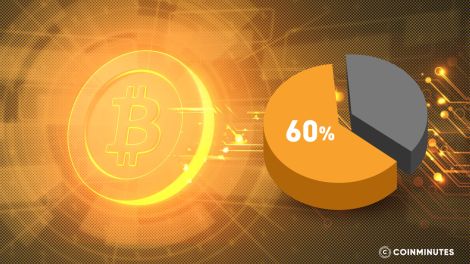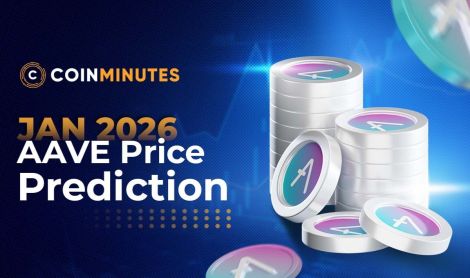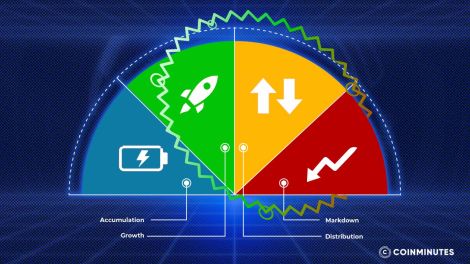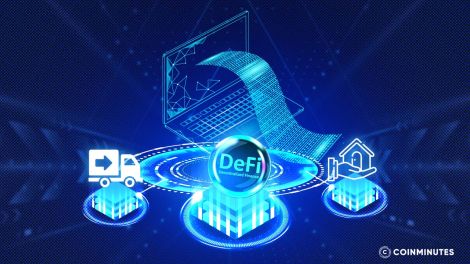Moca Foundation Launches Moca Chain: Layer-1 Blockchain for Digital Identity and Authentication
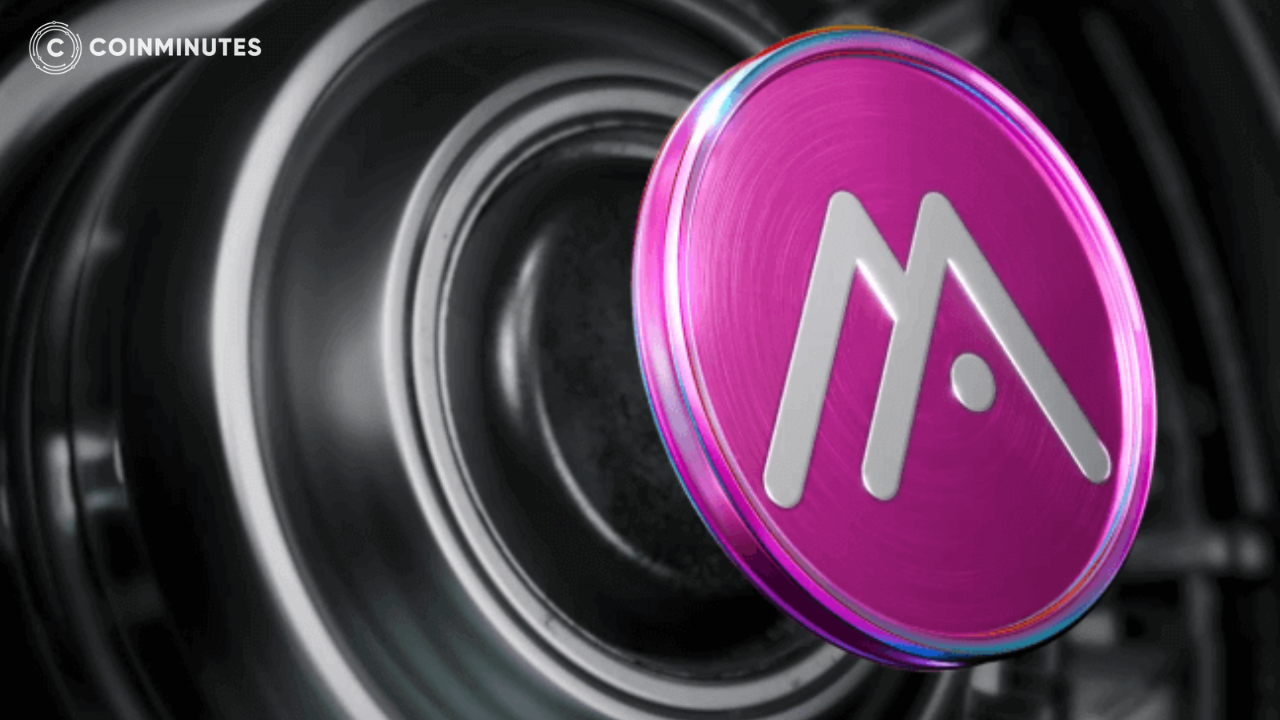
Tech giants own your digital identity. They always have.
In a move that directly challenges Silicon Valley's grip on who you are online, Animoca's Moca Foundation has unveiled Moca Chain—a purpose-built blockchain designed to revolutionize digital identity management. This isn't just another crypto project chasing the next big thing. It's a fundamental reimagining of how we prove who we are in digital spaces.
But can blockchain technology really solve a problem that's haunted the internet for decades?
The 100+ Places Your Identity Lives Without Your Control
Every website login you've ever created represents a fragment of your digital self, scattered across countless corporate servers.
The average American now juggles over 100 online accounts. That's 100+ opportunities for your personal information to be compromised, sold, or exploited without your knowledge.
How bad is it really?
Last year alone, 422 million people had their identities stolen through data breaches. The economic damage topped $56 billion.
Why? Because our current identity systems are fundamentally broken.
"Billions of internet users depend on centralized Single Sign-On solutions from tech giants," explains Animoca Brands co-founder Yat Siu. "These systems prioritize convenience over security and privacy."
You know the trade-off. You've made it countless times.
When you click "Sign in with Google" or "Continue with Facebook," you're not just saving time. You're granting these companies permission to track your every move across the internet.
They monitor each login. They record every connection. They assemble shadow profiles that follow you from site to site. Your identity isn't yours—it's their product.
Moca Chain wants to flip this arrangement on its head.
What Makes Moca Chain Different From Just Another Blockchain?
Most blockchains weren't built with identity in mind. Moca Chain was designed for nothing else.
The system combines four key technologies in ways no previous blockchain has attempted:
EVM compatibility ensures it works seamlessly with existing Ethereum tools and applications. This isn't a walled garden—it's designed to plug into the tools millions already use.
Decentralized storage splits your personal data into encrypted fragments distributed across multiple secure locations. Only you hold the keys to reassemble them.
Zero-knowledge proofs (specifically something called zkTLS) let you prove facts about yourself without revealing the actual information. Think of it as showing a bouncer that you're over 21 without revealing your exact birthdate or home address.
Identity oracles bridge the gap between real-world verification and blockchain credentials. These specialized validators confirm your information is legitimate without storing or controlling it.
"Traditional blockchains face an impossible choice with identity," notes Kenneth Shek, project lead at Moca Network. "They're either too public, exposing personal data to everyone, or too isolated from real-world identity systems. We've solved both problems."
The result? A system that creates verifiable credentials—digital versions of your important documents and attributes—that you control completely.
Need to see how this works in practice?
Consider applying for a loan today. You submit your entire credit history to the lender. With Moca Chain, you could simply prove "my credit score exceeds 700" without revealing your complete financial profile. The verification happens, but your private information stays private.
It's like showing only the specific card from your wallet that you need, rather than handing over your entire wallet.
AIR Kit: The Secret Weapon Behind Moca's 700-Million-User Plan
A blockchain is only as valuable as its users. And this is where Moca Chain has a massive head start.
AIR Kit—the developer toolkit that connects Moca Chain to real-world applications—is already deployed with major partners:
-
OK Cashbag has integrated AIR Kit with its 28 million KYC-verified users in South Korea.
-
One Football is bringing AIR Kit to its community of 200 million soccer fans worldwide.
With additional partnerships, AIR Kit potentially connects Moca Chain with over 700 million digital identities globally. That's roughly 20% of all internet users.
For developers, this means ready-to-use components for building identity-verified applications without the headache of handling sensitive data directly. For users, it means a dramatically simplified online experience.
"We're creating smart accounts, not just wallets," Shek explains. "These accounts interact intelligently with applications based on rules you define, removing friction while preserving your privacy."
The everyday impact? Rather than managing dozens of logins across different services, you maintain a single Moca identity that shares only what each service needs to know about you—and nothing more.
But how does this actually change real-world industries?
Beyond Login Screens: How Moca Aims to Transform Three Major Industries
Moca Chain's approach to identity opens possibilities that extend far beyond simplifying logins. Here's how it could reshape entire sectors:
Healthcare's Data Nightmare Solved?
Medical records today exist in fragmented systems that rarely communicate. It's a mess.
With Moca Chain, patients could maintain portable electronic health records they selectively share with providers.
Imagine visiting a specialist and granting temporary access to only the relevant portions of your medical history—without transferring your entire record. The doctor sees exactly what they need. Your sensitive information stays protected. Your health data remains under your control.
And when the appointment ends, that access expires automatically.
Financial KYC Without the Privacy Nightmare
Know Your Customer (KYC) and Anti-Money Laundering (AML) requirements force financial institutions to collect mountains of personal information. It's redundant, inefficient, and risky.
Moca Chain enables reusable KYC verification without repeatedly uploading your passport or utility bills to different services.
Once verified by a trusted provider, your KYC credentials could be cryptographically proven to any financial service without re-sharing the underlying documents. This maintains regulatory compliance while dramatically improving both user experience and privacy protection.
One verification, countless uses—with you controlling access every step of the way.
Advertising That Pays You, Not Tracks You
The $500 billion digital advertising industry currently tracks users across the internet to target ads. You're the product, not the customer.
Moca Chain enables something radically different: user-permissioned data sharing with transparent compensation.
Rather than being secretly tracked, you could explicitly choose which brands access your preferences and receive micropayments through MOCA tokens for your attention. This restores control to users while potentially improving targeting accuracy for advertisers.
Your attention becomes yours to sell—not theirs to steal.
MOCA Token: What Powers the Identity Machine?
The MOCA token serves as the economic foundation of this identity ecosystem, with multiple functions:
-
Transaction fees fund basic blockchain operations.
-
Staking secures the network and incentivizes validators.
-
Storage fees compensate those hosting decentralized identity data.
-
Oracle payments reward services verifying real-world information.
-
Data creation costs cover the issuance of verifiable credentials.
-
Authentication payments enable micropayments for identity checks.
Unlike many tokens with vague utility, MOCA directly powers essential functions within the identity ecosystem. While distribution details remain unannounced, the foundation confirms that testnet tokens will be available for developers in Q3 2025.
But there's a question hanging over this ambitious project.
Why This Blockchain Identity Project When Others Failed
Let's be honest: Moca Chain isn't the first attempt at blockchain-based identity. Projects like Civic, SelfKey, and various W3C initiatives have tackled similar problems with limited mainstream success.
So what makes Moca Chain different?
Timing changes everything. Regulatory pressure on centralized identity providers has intensified dramatically. The EU's Digital Identity Framework and similar initiatives are creating urgent demand for compliant solutions.
Institutional backing matters too. With Animoca Brands' ecosystem support and partnerships reaching hundreds of millions of users, Moca Chain has distribution channels that previous projects lacked.
Technology has finally caught up with ambition. Zero-knowledge proofs have advanced significantly in recent years, making private on-chain verification practically feasible for the first time.
"The technology, regulatory environment, and market demand have finally aligned," observes blockchain identity researcher Maya Chen. "Previous attempts were simply too early."
What's the Timeline for This Identity Revolution?
Moca Chain's roadmap reveals an aggressive schedule:
-
Q3 2025: Testnet launch with developer documentation and initial AIR Kit integration
-
Q4 2025: Mainnet deployment with foundational identity applications
-
Q1 2026: Expansion of oracle networks and cross-chain functionality
-
Q2 2026: Launch of marketplace for verifiable credential issuers
For everyday users, practical benefits should begin materializing in early 2026, as applications built on Moca Chain reach consumer markets.
For developers, opportunities emerge sooner. Early access to testnet features will be available to partners building identity-focused applications, with grants for innovative use cases.
Who Will Control Your Digital Self?
The internet was built without an identity layer. This fundamental oversight has led to our current fragmented, insecure, and privacy-invasive identity systems.
Moca Chain represents an attempt to retrofit what's missing—a user-controlled identity framework that serves people rather than surveillance capitalism.
"We're not just building technology," Shek emphasizes. "We're rebuilding the relationship between people and their digital selves."
Whether Moca Chain succeeds depends on overcoming significant adoption hurdles and competitor initiatives. But one thing is certain: the centralized identity model is under unprecedented pressure.
The transformation of digital identity isn't a question of if, but when—and more importantly, who controls it.
Will tech giants maintain their grip on your digital self? Or will you finally take ownership of who you are online?
Moca Chain is betting its future on your desire for freedom.
 English
English
 Vietnamese
Vietnamese

